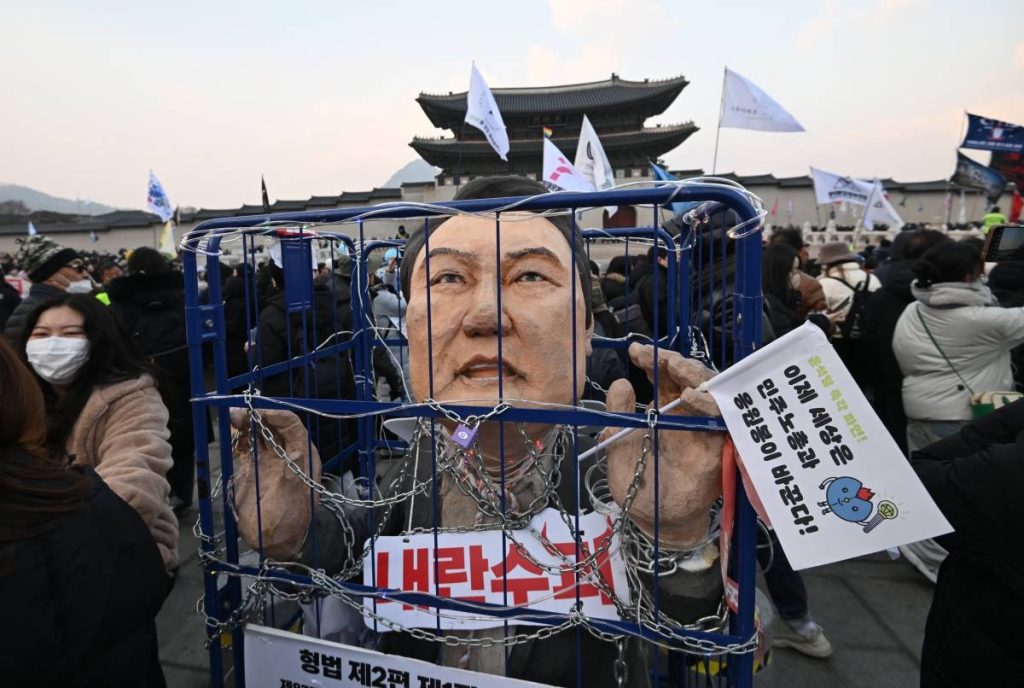South Korea’s impeached president, Yoon Suk Yeol has refused to comply with a summons for questioning on Christmas Day, marking the second time he has defied investigators in a week.
Yoon, stripped of his presidential duties by parliament on December 14, was ordered to appear at 10 a.m. (GMT 0100) on Wednesday. However, the suspended leader rejected the summons without providing an explanation.
Last Wednesday, Yoon also failed to attend a scheduled hearing, deepening the political turmoil that erupted after his controversial declaration of martial law, which parliament deemed an act of insurrection.
The conservative former prosecutor now faces impeachment and criminal charges, including insurrection—offences that could carry a life sentence or even the death penalty.

Investigators from the Corruption Investigation Office are deliberating on their next steps, including whether to issue a third summons or request a court-issued arrest warrant to compel Yoon’s appearance.
A joint investigative team, comprising prosecutors, police, and anti-corruption officials, is working in parallel with the Constitutional Court, which is reviewing the impeachment motion. The court has up to six months to issue its ruling. If the motion is upheld, a by-election must occur within 60 days to elect a new president.
Meanwhile, the Democratic Party has delayed a decision on impeaching Acting President Han Duck-soo, citing his refusal to approve special bills aimed at probing Yoon. However, the opposition party has warned that it may proceed with an impeachment motion against Han later this week.
This unfolding crisis has drawn comparisons to the impeachment of former President Park Geun-hye, who was removed from office after her impeachment was upheld by the Constitutional Court. Unlike Yoon, Park faced investigations only after her removal.


